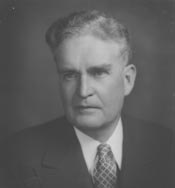A Quote by Margo Jefferson
Ralph Ellison's essays were models for me when I began my life as a critic. Slipping cultural yokes and violating aesthetic boundaries, he made criticism high-stakes work, especially for a black critic.
Related Quotes
I was the first critic ever to win a Tony - for co-authoring 'Elaine Stritch at Liberty.' Criticism is a life without risk; the critic is risking his opinion, the maker is risking his life. It's a humbling thought but important for the critic to keep it in mind - a thought he can only know if he's made something himself.
Technique is really personality. That is the reason why the artist cannot teach it, why the pupil cannot learn it, and why the aesthetic critic can understand it. To the great poet, there is only one method of music - his own. To the great painter, there is only one manner of painting - that which he himself employs. The aesthetic critic, and the aesthetic critic alone, can appreciate all forms and all modes. It is to him that Art makes her appeal.
Criticism on my works is like this: you've worked hard all of your life, you went to Oxford, and you've done this and that, and you're an art critic. Your job is to unravel the "secret" or whatever, and you come across an entity like me. It's going to piss you off. Because there's no great secret, what you see is what you get, and anyone can understand what I'm doing. So, it's almost like I make this critic-person redundant, just by my attitude, and they resent me for that.
In [Ralph] Ellison's case, it's more psychological than it is phenomenal, and it's conditioned by anger, animosity, and lack of desire to engage with the black body. There was always simultaneity that had nothing to do with visuality. You can be there and not be there at the same time and be fully visible all the time. That's what really struck me about Ellison .
No publisher should ever express an opinion on the value of what he publishes. That is a matter entirely for the literary critic to decide. I can quite understand how any ordinary critic would be strongly prejudiced against a work that was accompanied by a premature and unnecessary panegyric from the publisher. A publisher is simply a useful middle-man. It is not for him to anticipate the verdict of criticism.
After illuminating the work of Rembrandt, Caravaggio, Louise Bourgeois, Balthus, and other modern artists, Mieke Bal again demonstrates her extraordinary flair for cultural criticism in taking on the work of Doris Salcedo, exploring the philosophical and aesthetic stakes of this committed political art and the relation between beauty, violence, and memory. A tour de force.
I tried to fortify myself with the best nonfiction and fiction I could lay my hands on, from the essays of James Baldwin and Joan Didion, to the stories and novels of Ralph Ellison, Roberto Bolano and Celine. Distinctive voices like these were a source of constant nourishment on all range of matters, from punctuation to philosophy.



































